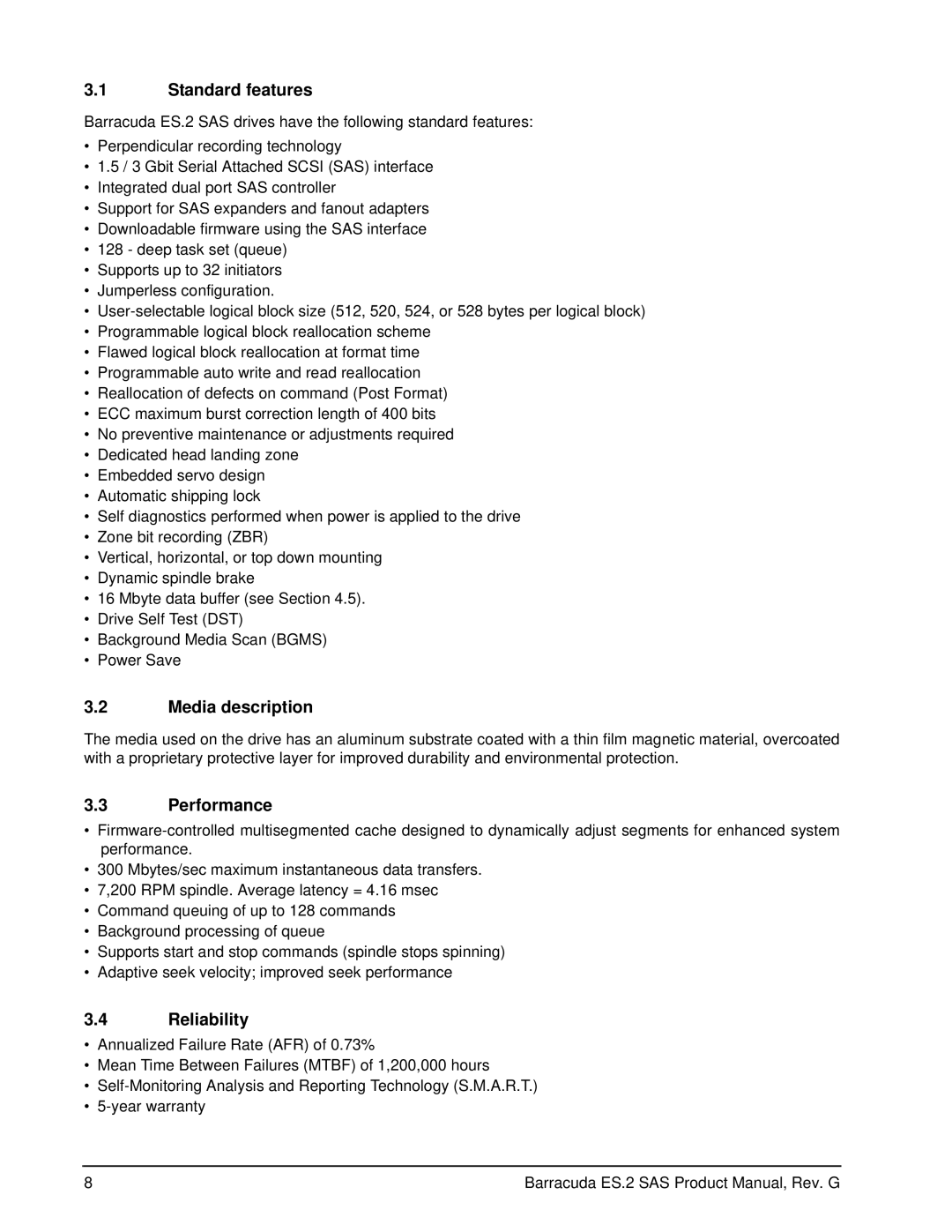3.1Standard features
Barracuda ES.2 SAS drives have the following standard features:
•Perpendicular recording technology
•1.5 / 3 Gbit Serial Attached SCSI (SAS) interface
•Integrated dual port SAS controller
•Support for SAS expanders and fanout adapters
•Downloadable firmware using the SAS interface
•128 - deep task set (queue)
•Supports up to 32 initiators
•Jumperless configuration.
•
•Programmable logical block reallocation scheme
•Flawed logical block reallocation at format time
•Programmable auto write and read reallocation
•Reallocation of defects on command (Post Format)
•ECC maximum burst correction length of 400 bits
•No preventive maintenance or adjustments required
•Dedicated head landing zone
•Embedded servo design
•Automatic shipping lock
•Self diagnostics performed when power is applied to the drive
•Zone bit recording (ZBR)
•Vertical, horizontal, or top down mounting
•Dynamic spindle brake
•16 Mbyte data buffer (see Section 4.5).
•Drive Self Test (DST)
•Background Media Scan (BGMS)
•Power Save
3.2Media description
The media used on the drive has an aluminum substrate coated with a thin film magnetic material, overcoated with a proprietary protective layer for improved durability and environmental protection.
3.3Performance
•
•300 Mbytes/sec maximum instantaneous data transfers.
•7,200 RPM spindle. Average latency = 4.16 msec
•Command queuing of up to 128 commands
•Background processing of queue
•Supports start and stop commands (spindle stops spinning)
•Adaptive seek velocity; improved seek performance
3.4Reliability
•Annualized Failure Rate (AFR) of 0.73%
•Mean Time Between Failures (MTBF) of 1,200,000 hours
•
•
8 | Barracuda ES.2 SAS Product Manual, Rev. G |
